One of Sami’s boldest chickens can’t resist hopping up onto the window sill to join our discussion. The chicken looks a little worse for wear—It’s dealing with hot weather and getting used to a new home. When Sami packed up his belongings in the displacement camp to move home, he brought his chickens back with him. Returning has been hard for everyone.
Restoring home is taking everything they’ve got—money, strength, and emotional energy.
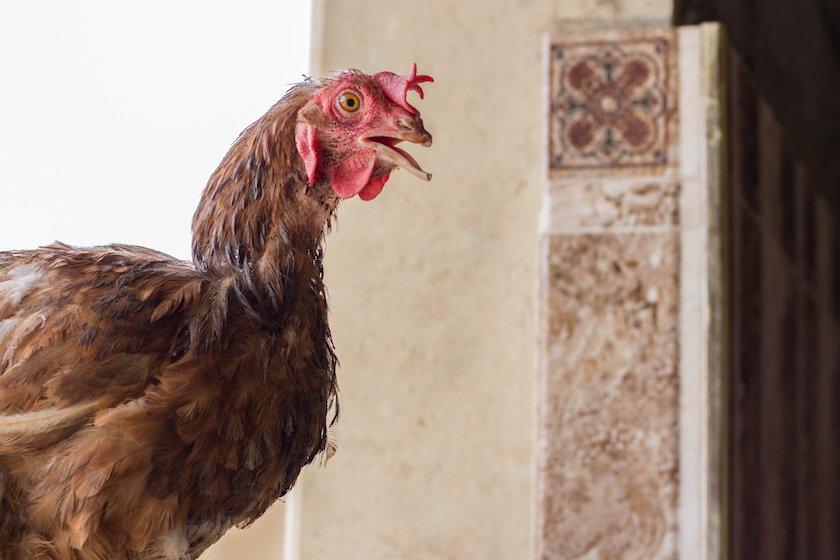
The Destruction
They returned home to find that all of their belongings were stolen. Even the electrical panel, switches and sockets were taken from the walls.This didn’t surprise the brothers. What they didn’t expect was the level of destruction. What couldn’t be stolen, like the ceramic tile on the walls and floors, was smashed to pieces.
This kind of destruction just seemed so unnecessary, so… vindictive.
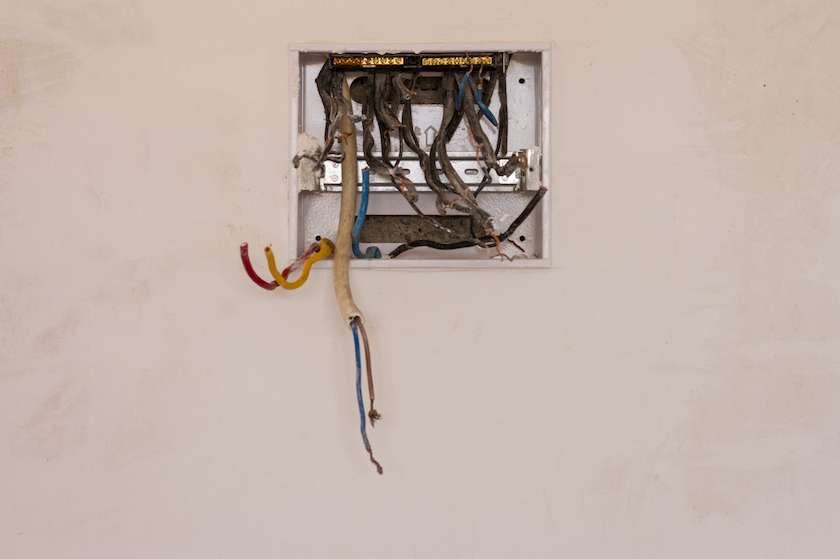
The most heartbreaking loss to Sami was the little olive grove that used to stand beside his house. These trees, the oldest he guessed to be 70 years old, were the reason why Sami chose this spot for he and his brothers to build their houses. Their row of homes were arranged in family order, with oldest brother Sami’s home first, and his youngest brother’s house at the end.
But this grove of trees, these elders, they held the place of honour at the head of the row. Now they are gone.
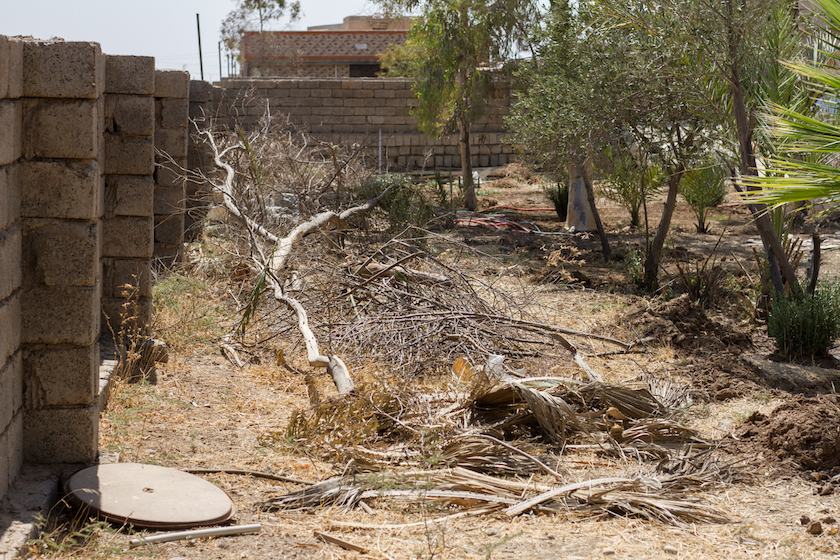
Rebuilding
The brothers tell us this living room where we sit isn’t, in fact, their real home. They were displaced once before because of sectarian violence. For seven years they slowly built and improved their homes in this community. They never borrowed money for building projects. Ever so slowly, as they saved money, they fixed up their homes.
Sami often has a smile on his face, but in a serious moment he confesses “I’m in my 50’s. How do I start over again?”
He did start over though.
In his first act of defiance against violence, even before he started repairing his house, Sami planted olive trees to replace the ones that ISIS destroyed. Sami’s pain doesn’t cloud his determination to invest in the future of his family, of his community

Planting trees was followed by days of demolition work, removing what was broken and creating a clean slate. Walls were repaired. New, beautiful tiles now gleam on the floors and walls.
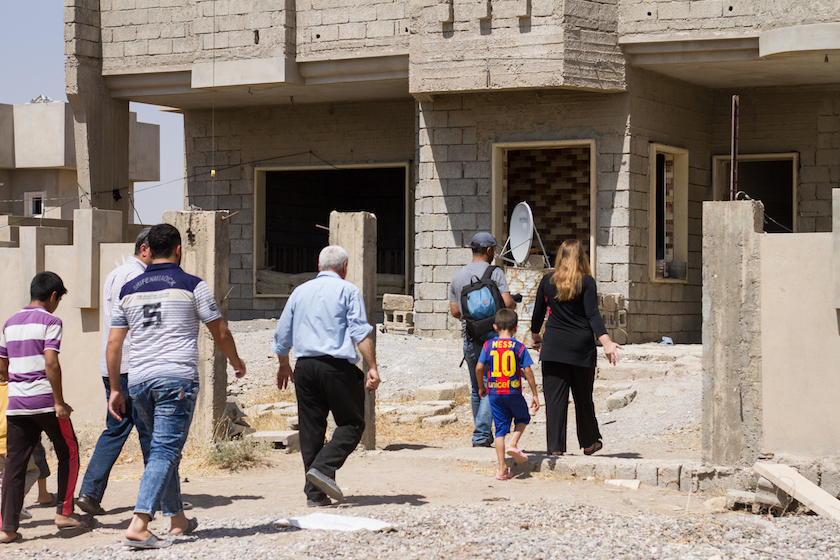
Wives and daughters making home
There were two things on the property that escaped destruction—a clay bread oven tucked into a hidden corner of the yard, and bags of unwashed sheep wool. Sami and Fahti’s wives and daughters are making the most of both.
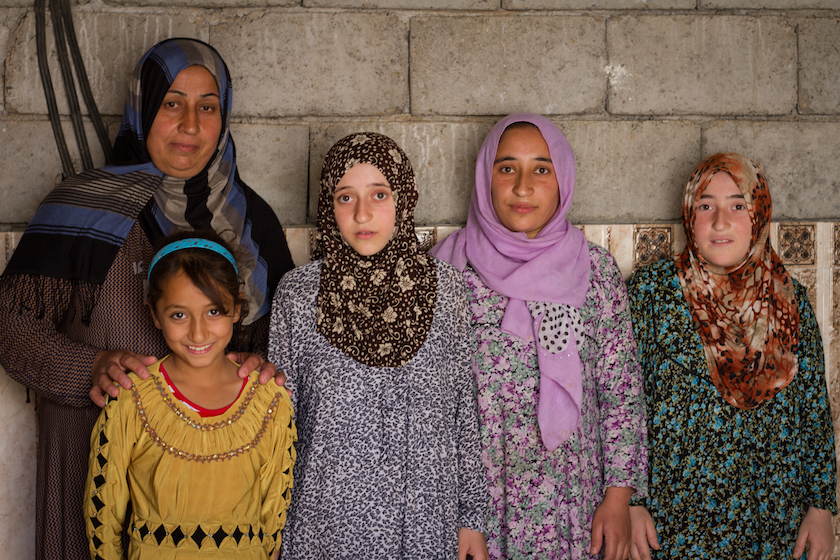
The clay oven was put into use immediately, and has been cooking their daily bread since their return. The olive trees that ISIS cut down now provide the fuel for the oven. After the bread is made each evening, just before sunset, the coals are carefully covered until morning. After breakfast, a pot of beans is nestled into the revived embers, to be ready for lunch.

The wool has been a great resource for the family. Because it was still unwashed when the families fled, ISIS saw no value in it. Each day the girls wash and rinse a bag of fleece, squeeze out the water, fluff the snowy tufts, then leave them on a clean, tiled floor to dry. With afternoon temperatures of more than a hundred degrees, it doesn’t take much time at all.
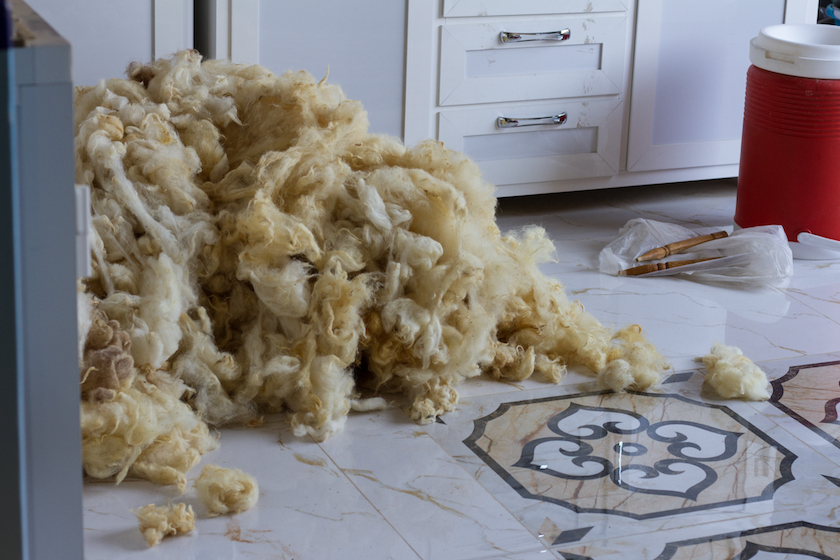
They then use the cleaned wool to stuff mattresses and pillows. These simple objects transform the shell of their unfinished house into a home.
Work Ahead
There are still so many things that need to happen before Sami and Fahti’s homes are finished. There are windows and doors to make, electrical fixtures to replace, and a myriad of other details. They will first focus on the work of making their houses weather-tight before winter. The work is slower than they hoped. Materials are more expensive than they’d expected. But these are patient men. They will keep pressing on.
Soon they will open their new business—making doors, windows and kitchen cabinets—and help their neighbours restore their homes. You provided the tools and training they need to make their new venture a success. You, Sami, and Fahti all have a long vision in mind. Investing in their business pays off infinitely more than temporary food aid would.
In time, Sami will replace his beloved homestead animals. He will replace the bees, sheep, and goats that provided food and income for his family, and much joy for his heart.
Empower families to rebuild their homes and their lives.


